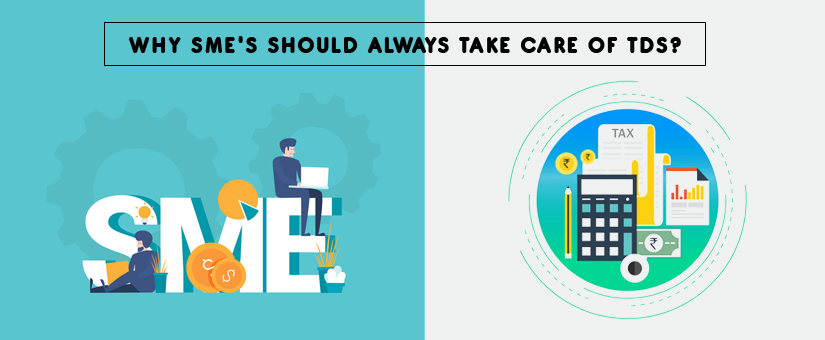Tax Deducted at Source (TDS) is the tax amount deducted from the payments made by individual people, according to the Income Tax Act. TDS comes under the scope of the Indian Revenue Services (IRS) and is managed by the Central Board of Direct Taxes (CBDT).
The main reason why the government enforces payment of TDS within a stipulated time is to reduce the possibilities of tax evasions at the current period. TDS applies to various monetary transactions like salaries, interests, commissions, and other similar payments.
How Do SMEs Come into Play?
TDS has been made mandatory by law for every company in India, including startups and small businesses. The government of India has a system of getting individuals to pay for the TDS at the time of the purchase of a service.
This is where the work of an SME comes in. SMEs may get the help of various services to run their businesses, like consultants, contractors, Chartered Accountants, freelancers, etc. It is the duty of the SME to deduct the TDS from the amount they pay for these services and pay the tax to the government.
Similarly, the TDS should also be deducted from the payment of salaries to the employees. During every salary pay-out, the SMEs should deduct the TDS as per the slab the individual employee’s salary comes under and pay the deducted tax to the government within the stipulated time frame.
Percentage of TDS According to the Salary
-
If the employee salary is below INR 2.5 lakhs, then there is no TDS. For everyone above this limit, the SME has to deduct the TDS based on their salaries.
-
If the salary of the employee is between INR 2.5 lakhs and INR 5 lakhs, then the TDS is 5% on the income.
-
If the salary of the employee is between INR 5 lakhs and INR 10 lakhs, then the TDS is 20%.
-
If the salary of the employee is above INR 10 lakhs, then the TDS is 30%.
It is compulsory for the SMEs to deduct the proper TDS amount and file the same at the end of each quarter.
What Happens When SMEs Fail to Collect TDS?
There are several details to be observed when it comes to TDS. The SMEs have to keep a note of the exact percentage of TDS that needs to be deducted, the due date for the payment of the same, and the filing of TDS returns. If there are any delays or issues in this process, the SMEs should pay penalties.
Here are some of the common issues related to TDS payment and its consequences:
-
Late Deduction of the TDS
SMEs have to be cautious whenever they are making a payment for a service. If the SME fails to deduct the TDS during the time of payment, either entirely or for a part of it, then according to the clause stated under Section 201A, the SME has to pay an interest of 1% per month from the time the tax wasn’t deducted to the date when it was. When calculating the TDS penalty, even a single day is calculated as a month. Therefore, it is vital to pay the TDS on time.
-
Non-Payment of the TDS after Deduction
If the company has deducted the TDS but failed to pay it to the government, then there is a 1.5% interest levied on the TDS amount from the date of deduction till the time the TDS is paid to the government. Please note that the TDS deducted should be paid to the government on the 7th of the following month to avoid the aforementioned interest charges.
-
Late Filing on the TDS
For every business, the TDS has to be paid for every quarter before the following dates – 31st July, 31st October, 31st January, and 31st March. Failure to file the TDS returns before this date will result in penalties.
For delay in filing the TDS returns, the company must pay a penalty of INR 200 each day until the time of payment of the TDS. This penalty is applicable until the time it reaches the TDS amount. If there are any discrepancies in the return filing of the TDS or the deduction of the tax amount, then the SME may have to pay a penalty of INR 10,000 to INR 1 lakh under Section 271H.
-
Non-Deduction of the TDS
If the business has failed to collect the TDS at all, then there are chances of getting the whole payment disallowed when computing the profits and gains of the business.
Final Note
As you can see, if you miss any payment of TDS, make some mistakes when calculating it or filing it, it may impact your profits. Therefore, SMEs should be completely aware of these TDS regulations to make sure that it doesn’t impede the business. Also, SMEs should keep themselves updated on the latest rules and regulations of TDS when the government releases the finance report of the year.
It is essential for SMEs to have a system in place when sending out invoices and payments to third-parties as well as for salary payments.
